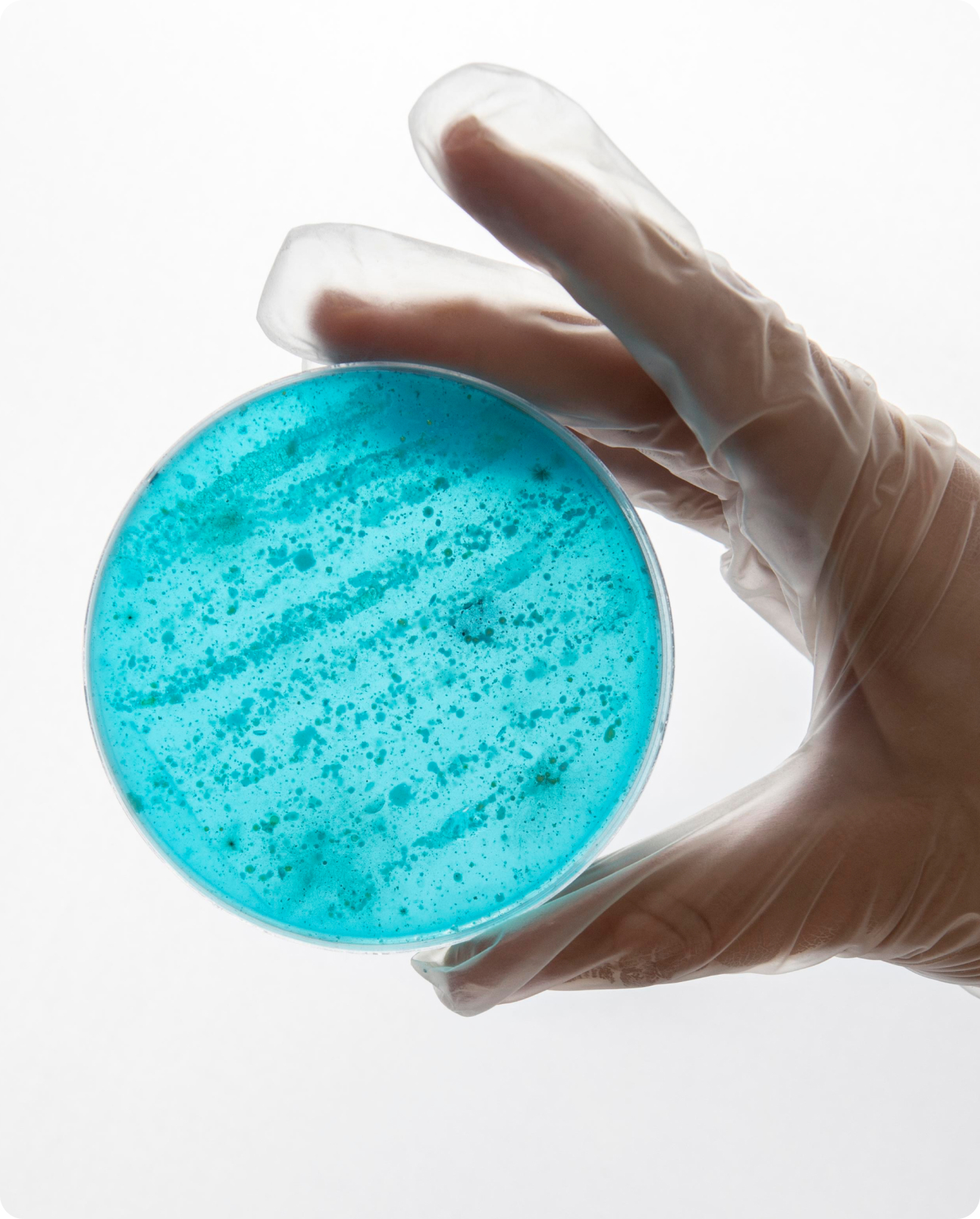An ammonia-like smell from your vagina can be alarming. That sharp, chemical odor isn't something you expect, and it often leaves you wondering what's going wrong with your body.
The truth is, this type of odor usually signals that your vaginal environment has shifted in ways that need attention. While some odor changes are completely normal throughout your cycle, a persistent ammonia smell typically points to a bacterial imbalance that you can address.
Medical Disclaimer: This article is for educational purposes only and does not constitute medical advice. Always consult with a healthcare provider for proper diagnosis and treatment of vaginal health concerns.
The Main Culprit: Bacterial Vaginosis
Most ammonia-like vaginal odors come from bacterial vaginosis, or BV. This condition happens when the bacteria in your vagina get out of balance [1].
Here's what normally keeps your vagina healthy: beneficial bacteria called Lactobacillus maintain a slightly acidic environment with a pH between 3.8 and 4.5. This acidity acts like a natural defense system, preventing harmful bacteria from taking over.
When BV develops, this system breaks down. The good bacteria decline while problematic bacteria like Gardnerella vaginalis multiply rapidly. These bacteria produce compounds called trimethylamines as they break down proteins in your vaginal secretions. These compounds create that distinctive ammonia or fishy smell [2].
Research shows that women with BV have high levels of trimethylamine in their vaginal fluid, while women with healthy vaginas have little to none [2]. It's essentially the waste products from these bacteria that create the odor.
Other Causes of Ammonia Odor
pH Changes
Your vaginal pH can shift for many reasons. When it rises above 4.5, you've created an environment where odor-producing bacteria thrive [3]. Sexual activity can temporarily raise pH since semen is alkaline. Hormonal changes during your cycle, antibiotic use, douching, and even stress can all disrupt this delicate balance.
Dehydration Effects
Sometimes the ammonia smell isn't coming from your vagina at all. When you're dehydrated, your urine becomes concentrated with waste products, including ammonia. If traces of this concentrated urine linger on your vulvar tissues, they can create or worsen ammonia-like odors [3].
How Your Vaginal Microbiome Works
Think of your vaginal microbiome as a carefully balanced ecosystem. The beneficial bacteria don't just sit there passively. They actively produce lactic acid and antimicrobial compounds that keep harmful bacteria in check [4].
When this balance gets disrupted, harmful bacteria can form protective biofilms that shield them from your body's natural defenses [1]. These bacterial communities then break down proteins and produce the enzymes that generate those unpleasant odors.
This is why addressing the root cause of the imbalance works better than just trying to mask the smell.
Telling Different Odors Apart
Ammonia odor has a sharp, pungent quality that's similar to cleaning products or very concentrated urine. It often becomes more noticeable after sex or at certain points in your cycle.
A fishy odor shares some similarities with ammonia odor since both can result from bacterial vaginosis, but fishy smells tend to be more organic and less sharp.
Metallic odors usually happen around menstruation when blood interacts with vaginal bacteria. Sweet or fruity odors are quite different and might indicate yeast overgrowth or other metabolic changes.
When to Worry
Mild odor changes during your cycle are normal. Brief episodes around menstruation or ovulation that resolve within a few days usually aren't cause for concern.
You should see a healthcare provider if the ammonia odor persists for more than a week, gets stronger over time, or doesn't improve with good hygiene. Also seek care if you have unusual discharge, itching, burning, pelvic pain, or fever along with the odor.
Effective Solutions
Restoring pH Balance
The most effective approach targets the underlying pH imbalance rather than just covering up symptoms.
Lactic acid works well because it mimics what your body naturally produces. It lowers vaginal pH back to the healthy range and creates conditions where beneficial bacteria can regain control. Neycher's BV Away suppositories use lactic acid along with soothing aloe vera and antimicrobial zinc oxide to address both the imbalance and any irritation.
Boric acid offers another scientifically proven option. At 300mg, it helps reestablish the acidic environment your vagina needs. Neycher's Boric Acid Complex includes hyaluronic acid to prevent the dryness that sometimes occurs with boric acid treatments.
Supporting Your Body's Natural Balance
Stay well hydrated so your urine doesn't become overly concentrated. Choose breathable cotton underwear and avoid tight synthetic fabrics that trap moisture. Use gentle, unscented cleansers for external washing only, and avoid douching since it disrupts your natural bacterial balance.
When You Need Professional Help
Some situations require medical attention. If pH-balancing treatments don't help, if symptoms worsen, or if you have recurring episodes of BV, your healthcare provider might prescribe antibiotics or investigate underlying factors like hormonal changes.
Prevention Strategies
Supporting your vaginal health long-term involves maintaining the conditions that allow beneficial bacteria to thrive. Eat a balanced diet, manage stress, limit unnecessary antibiotic use, and avoid products that disrupt vaginal chemistry.
Pay attention to your body's normal patterns so you can recognize changes early. Keep track of what seems to trigger imbalances for you personally, whether it's certain times in your cycle, stress, or other factors.
Understanding Your Options
Ammonia-like vaginal odor usually stems from bacterial imbalances that respond well to targeted treatment. Understanding what causes these odors helps you take appropriate action rather than just worrying about them.
The key is recognizing that your vagina has sophisticated self-regulating mechanisms. When you support these natural processes through pH restoration and healthy lifestyle choices, your body can often restore balance on its own.
Most cases improve with treatments that address the root cause rather than just masking symptoms. Lactic acid and boric acid treatments work because they recreate the conditions your beneficial bacteria need to thrive. This approach tends to provide longer-lasting results than treatments that only target symptoms.
Remember that every woman's body is different. What triggers bacterial imbalances varies from person to person. Some women find that stress affects their vaginal health, while others notice changes related to their menstrual cycle or sexual activity. Paying attention to your own patterns helps you develop a personalized approach to maintaining vaginal health.
If you're dealing with recurring issues, don't get discouraged. Bacterial vaginosis can be stubborn, and it sometimes takes time to find the right combination of treatments and lifestyle adjustments that work for your body. Working with a healthcare provider who understands the complexity of vaginal health can make a significant difference in finding effective solutions.
With proper care and attention to your vaginal health, you can maintain comfort and confidence while supporting your body's natural protective mechanisms. The goal isn't to eliminate all vaginal odor, which is normal and healthy, but to address the specific imbalances that cause concerning changes like persistent ammonia smells.
References
[1] Chen, X., Lu, Y., Chen, T., & Li, R. (2021). The Female Vaginal Microbiome in Health and Bacterial Vaginosis. Frontiers in Cellular and Infection Microbiology, 11, 631972. https://pubmed.ncbi.nlm.nih.gov/33898328/
[2] Wolrath, H., Borén, H., Hallén, A., & Forsum, U. (2002). Trimethylamine content in vaginal secretion and its relation to bacterial vaginosis. APMIS, 110(11), 819-824. https://pubmed.ncbi.nlm.nih.gov/12588422/
[3] Mayo Clinic Staff. (2023). Vaginal odor - Symptoms and causes. Mayo Clinic. Retrieved from https://www.mayoclinic.org/symptoms/vaginal-odor/basics/causes/sym-20050664
[4] Harvard T.H. Chan School of Public Health. (2024). Vaginal microbiome research uncovers new findings for women's health. Retrieved from https://hsph.harvard.edu/news/vaginal-microbiome-research-uncovers-new-findings-for-womens-health/
[5] American College of Obstetricians and Gynecologists. (2020). Vaginitis in Nonpregnant Patients. ACOG Practice Bulletin, 215. https://pubmed.ncbi.nlm.nih.gov/31856123/








